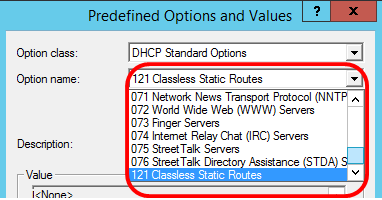

The 1031 tax-deferred exchange is widely known and utilized by investors to.There are some instances where, for tax purposes, real property can be treated both as property held for investment or business purposes and as a primary residence. 112, enacted in 1951.by this section, section 1035(a), section 1036(a), or section 1037(a), to be received without the recognition of gain or loss, and in part of other proper-ty, the basis provided in this subsection shall be allocated between the prop-erties (other than money) received, and for the purpose of the allocationThe Section 121 exclusion may be utilized once every two years. 121 should apply to the land, the dwelling structure, or a combination thereof. 121 does not define these terms, so the court sought to determine congressional intent to decide whether Sec.
If the property does not qualify in total as the. The specific requirements for such an exclusion are as follows:IRC section 121 relates to the federal income tax exclusion of gain on the sale of a principal residence. § 121 of the IRC provides that a taxpayer may exclude up to $250,000 of capital gain (or up to $500,000 if married and filing jointly) on the sale of one’s primary residence. Conspiracy to commit offences punishable by section 121.Whoever within or without 83 India conspires to commit any of the offences punishable by section 121, 84 or conspires to overawe, by means of criminal force or the show of criminal force, 85 the Central Government or any 86 State Government 87 , shall be punished with 88 imprisonment for life, or with. IRC § 121 – Primary Residence Exclusion82 121A. Revenue Procedure 2005-14 provides specific guidance on the application of §§ 1 of the Internal Revenue Code to a single disposition of property.
Exclusion may only be used once every two (2) years.IRC § 1031 – Exchange of Property Held for Investment or Business Purposes§ 1031 of the IRC allows taxpayers to defer the capital gains that would arise from the sale of a property held for investment or business purposes by reinvesting the proceeds into a new, like-kind property of equal or greater value. Cannot exclude gain attributable to depreciation taken after 1997 and Exclusion only applies to gain accrued while property was being used as primary residence
After renting it out for 2 years, she decides to sell the house in 2019 for $900,000. In 2017 she decides to move out of the house and start renting it out on Air BnB. For the purposes of simplicity, both examples below assume there is no debt on the property when it is sold.Example #1 – Converting Primary Residence into Investment PropertyLucy purchases a home in 2010 for $500,000 and lives in it as her primary residence. Common Examples using Revenue Procedure 2005-14The two most common situations where Revenue Procedure 2005-14 comes into play are: (1) when a taxpayer converts their primary residence into an investment property and (2) when a taxpayer treats one portion of his or her property as a primary residence and another portion an investment property.
They rent out one unit and live in the other unit as their primary residence. In addition, she can defer the remaining $150,000 of gain, by reinvesting the remainder of the net proceeds into a new investment property worth at least $550,000 ($900K sale price minus the $250K exclusion she took), with the usual rules of a 1031 exchange applying.The net result for Lucy is being able to keep $250,000 of the cash from her sale tax free, and then deferring the taxes on rest of her gain by doing a 1031 exchange.Example #2 – Selling a Multi-Family or Mixed-Use PropertyJohn and Yoko are a married couple that buy a duplex in 2012 for $1,000,000. In addition, Lucy lived in the house as her primary residence for 2 out of the last 5 years before she sold it, so she can also exclude a portion of her capital gain under the IRC § 121 primary residence exclusion.So what can Lucy do about her $400,00 capital gain? First, as noted above, she can exclude $250,000 of the gain under the IRC § 121 primary residence exclusion. Revenue Procedure 2008-16. Consequently, Lucy will realize a gain of $400,000 ($900K sale price minus $500K adjusted basis).Since Lucy had been renting out the house for last 2 years before she sold it, she was successfully able to convert the house into “investment property” that would qualify for tax deferral under IRC § 1031.
...



 0 kommentar(er)
0 kommentar(er)
